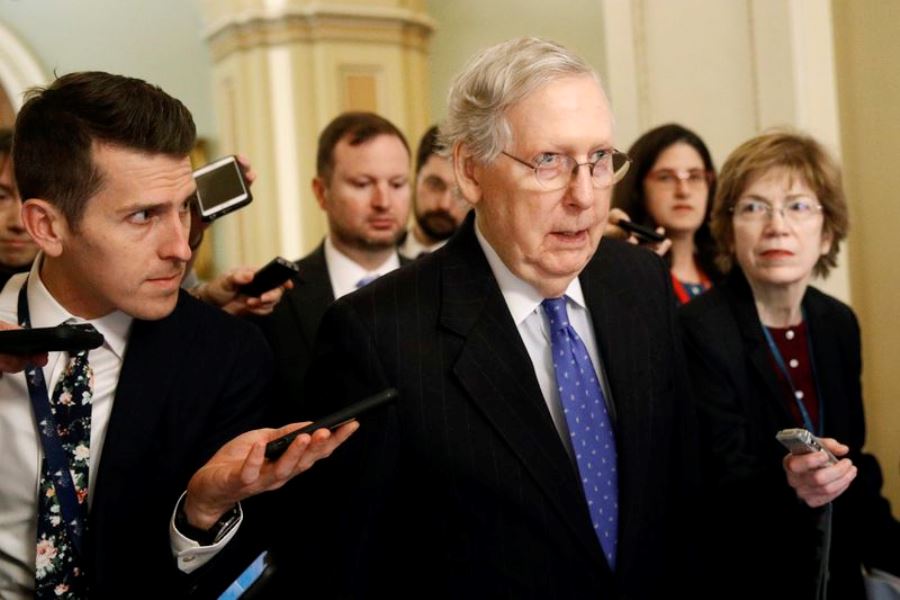U.S. News
Senate pushes $484B coronavirus stimulus bill for hospitals and businesses [Video]

WHAT YOU NEED TO KNOW:
- The U.S Senate passed the fourth economic bill, which focuses on small businesses and medical facilities expansion.
- The passing follows an almost two weeks debate between minority and majority lawmakers.
- President Donald Trump is to push for another stimulus package meant for infrastructure.
On Tuesday, the Senate on a majority vote was able to pass an almost half-trillion-dollar coronavirus economic bill to top up a small-business lending program and support the health workers and the hospital’s testing expansion.
The bill, amounting to $484 billion, is the biggest since the last installment a month ago. This was following the political debate last week between opposing legislators. The standstill resulted in the delay last week of the Small Business Administration’s Paycheck Protection Program, which grants firms loans that will be waived should they won’t furlough workers.
Senator Mitch McConnell, R-Ky. Majority Leader was not successful in pushing a $250 billion loan expansion program this month since it was railed by Democrats.
It turned out Democrats aimed for a more substantial budget, including assistance for local and state governments, which was not included in the bill’s final draft.
On Tuesday, McConnell commented the bill was hanging for 12 days
before Democratic settled with a deal, noting that Americans would have never
been used as leverage in political exercises.
However, Senator Chuck Schumer, D-NY, Minority Leader, sees things differently, saying aid is coming because Democrats pressed for it.
The new bill is comprised of $75 billion in support for medical care capacity expansion and another $25 billion to improve testing capability.
The highlight of the bill was the almost doubled value of the first $350 billion small-business financing program, which added to the portion of $2 trillion COVID-19 stimulus deal that was approved a month ago.
The deal is to set aside $60 billion for small banks, lenders, and credit unions to develop the Purchasing Power Parity (PPP) to more companies, including firms that do not maintain bank accounts.
An additional $50 billion shall cover the Small Business Administration’s (SBA) Economic Injury Disaster Loan package, and another $10 billion to the Emergency Economic Injury Grant program of the agency.
The final total was pushed higher by considering the administrative expenses.
On Tuesday, Senator Ben Cardin, D-Md., commented about large companies which are reportedly getting loans assigned to small business, noting that it is vital that these budgets reach the intended recipients.
Senator Rand Paul, R-Ky., was not in favor of the stimulus bill, citing national debt as the reason. He noted that reopening the economy was the solution to the problem.
Sen. Paul was the only representative in the upper chamber that was diagnosed with COVID-19.
Meanwhile, the House is looking forward to passing the bill early Thursday and may utilize proxy voting, a first amidst the coronavirus crisis.
Sen. Schumer added he prefers another coronavirus bill that shall cover hazard pay, rental assistance, and more aid to the states.
President Trump, on the other hand, is also aiming for a $2 trillion infrastructure bill.
Source: New York Post
